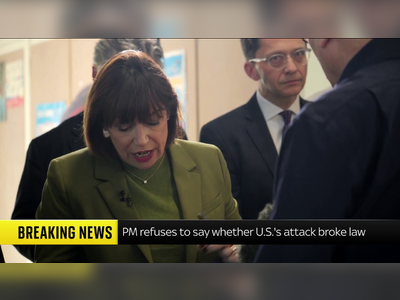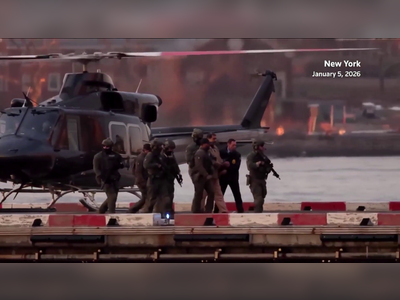
Peru's Machu Picchu reopens as protests shift to capital
The Inca citadel of Machu Picchu will reopen on Wednesday, Peruvian officials have announced.
The Unesco World Heritage site, which is visited by thousands of tourists a day, was closed more than three weeks ago as anti-government protestors blocked key access routes.
Officials said they would ensure the ancient monument and the transport links leading to it were safe.
Protests continue in the capital, Lima, and other regions in the south.
Tourism is key to Peru's economy and the losses caused by the ongoing political crisis are estimated to amount to more than $6m (£5m).
Train services to Machu Picchu resumed last week with a limited service. They had been suspended after protesters had placed boulders on the line.
 Trains to Machu Picchu have been running again since 8 February
Trains to Machu Picchu have been running again since 8 FebruaryThe political crisis erupted on 7 December when the then-president, Pedro Castillo, tried to dissolve Congress before it could hold a vote on whether to impeach him.
Congress defied the president and proceeded with his impeachment, removing Mr Castillo from office and swearing in his vice-president, Dina Boluarte, as the country's new leader.
At first, Ms Boluarte said she would serve out the presidential term begun by Mr Castillo in full - until July 2026. But with violent protests sweeping through the country, she urged lawmakers to bring the election forward.
Congress voted in favour of a proposal to move it to April 2024, but this concession failed to quell the protests, which have turned deadly.
Since the start of the crisis, 60 people have been killed in clashes between the security forces and demonstrators, according to the office of Peru's ombudsman.
President Boluarte has tried to convince Congress to give in to protesters' demands for elections to be held even earlier but the deeply divided legislative body has so far refused.
With neither proposal adopted, the elections are currently scheduled for the original date in July 2026.
Meanwhile, anger on the streets has been growing with many demanding the immediate resignation of Ms Boluarte and fresh elections for president and Congress this year. Some also want to see constitutional reform.
With some of the protests moving to the centre of political power in Lima, the local authorities have banned gatherings in several of the city's main squares.
On Tuesday, President Boluarte extended a state of emergency in the capital, the province of Callao, and the country's major highways by another 30 days.











